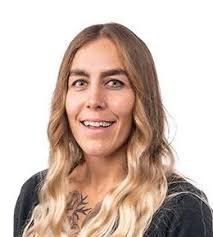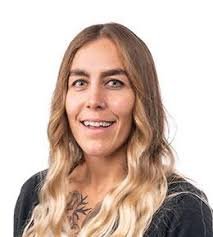In South Dakota and across the whole United States, addiction and mental health struggles touch every community. Yet far too often, people suffer in silence—not because help isn’t available, but because stigma keeps them from reaching for it.
Stigma shows up in many forms. It’s the harmful comments we hear about people who use substances. It’s the judgment directed at those struggling with depression, anxiety or trauma. It’s even the quiet self-blame people carry, believing they should be able to “snap out of it” or that asking for help makes them weak.
Social stigma is deeply embedded in our systems and culture. It can show up in the way medical professionals talk about patients, in media portrayals that dehumanize or in policies that punish rather than support. When people internalize these messages, they may avoid seeking care altogether—also known as label avoidance. They fear being labeled as “addicts” or “crazy,” and would rather struggle alone than face the shame and judgment that too often follows disclosure.
This silence can be and is deadly. Addiction is a treatable health condition. Mental health challenges are human, not moral failings. But when stigma gets in the way, it cuts people off from connection, care and healing.
So how do we fight it?
We lead with compassion. We create spaces where people are met with dignity, not dismissal. We challenge our own biases and educate ourselves on the realities of addiction and mental health. We tell the truth: recovery is possible, and people are so much more than their struggles.
At the University of South Dakota, the Department of Addiction Counseling & Prevention is committed to changing the narrative. Our students and faculty work to educate, advocate and care for people across the region—whether in treatment settings, prevention programs or community outreach efforts.
To help make that shift, faculty members in the department are using a grant to provide prevention, harm reduction, treatment and recovery services for those individuals with substance use disorders who are involved with the courts. The $2 million grant will integrate:
• Integrated Peer Support Services: The grant funds peer support specialists to work directly with Drug Court participants, offering lived experience guidance, accountability and recovery support.
• Wraparound Care Model: Emphasizes coordinated care—connecting participants to medical, behavioral health, housing and employment resources.
• Focus on Sustainability: Aims to increase the number of billable services and set up systems for long-term sustainability beyond the grant period.
• Data-Driven Outcomes: Includes metrics for reducing recidivism, increasing treatment engagement and improving participant stability.
We believe that no one should be ashamed to ask for help. Everyone deserves access to care, and everyone deserves to be treated with humanity.
Ending stigma won’t happen overnight, but it starts with all of us. We can speak up when we hear harmful language. We can be a listening ear. We can make room for people to show up exactly as they are—and meet them with respect.
Let’s be a community where no one has to hide their pain. Let’s create a South Dakota where people feel safe to heal.
Richard P. Holm, MD passed away in March 2020 after a battle with pancreatic cancer. He is founder of The Prairie Doc®. For free and easy access to the entire Prairie Doc® ® library, visit www.prairiedoc.org and follow Prairie Doc® on Facebook. Melissa Dittberner, or “Dr. Mo” as she is known to her students, is a professor in the Addiction Counseling & Prevention Department at the University of South Dakota.





